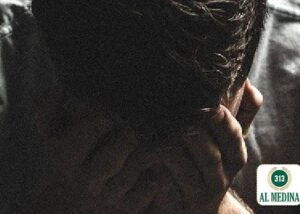Is a woman who dies whilst pregnant or delivering a child a Shaheedah (a Martyr)?
Quran
Hadith
Islamic Text
Yes, a woman who dies whilst pregnant or delivering a child is a Shaheedah (a Martyr)?
عَنْ رَاشِدِ بْنِ حُبَيْشٍ، أَنَّ رَسُولَ اللهِ صَلَّى اللهُ عَلَيْهِ وَسَلَّمَ دَخَلَ عَلَى عُبَادَةَ بْنِ الصَّامِتِ يَعُودُهُ فِي مَرَضِهِ، فَقَالَ رَسُولُ اللهِ صَلَّى اللهُ عَلَيْهِ وَسَلَّمَ: ” أَتَعْلَمُونَ مَنِ الشَّهِيدُ مِنْ أُمَّتِي؟ “ فَأَرَمَّ الْقَوْمُ، فَقَالَ عُبَادَةُ: سَانِدُونِي، فَأَسْنَدُوهُ، فَقَالَ: يَا رَسُولَ اللهِ، الصَّابِرُ الْمُحْتَسِبُ، فَقَالَ رَسُولُ اللهِ صَلَّى اللهُ عَلَيْهِ وَسَلَّمَ: ” إِنَّ شُهَدَاءَ أُمَّتِي إِذًا لَقَلِيلٌ: الْقَتْلُ فِي سَبِيلِ اللهِ عَزَّ وَجَلَّ شَهَادَةٌ، وَالطَّاعُونُ شَهَادَةٌ، وَالْغَرَقُ شَهَادَةٌ، وَالْبَطْنُ شَهَادَةٌ، وَالنُّفَسَاءُ يَجُرُّهَا وَلَدُهَا بِسُرَرِهِ إِلَى الْجَنَّةِ “ قَالَ: وَزَادَ فِيهَا أَبُو الْعَوَّامِ: ” سَادِنُ بَيْتِ الْمَقْدِسِ وَالْحَرْقُ
On the authority of Rashid ibn Hubaysh (May Allah Most High be pleased with him), that the Messenger of Allah (Peace and Blessings of Allah Most High be upon him) entered upon Ubadah ibn Samit (May Allah Most High be pleased with him), whilst he was ill. So, the Messenger of Allah (Peace and Blessings of Allah Most High be upon him) said: ‘Do you know who a Shaheed (martyr) from my nation is?’ The people fell silent. Ubadah (May Allah Most High be pleased with him) said: Sit me up, so they (the people) sat him up. He said: ‘O Messenger of Allah (Peace and Blessings of Allah Most High be upon him), the one who is patient and hoping to be rewarded.’ Thereupon the Messenger of Allah (Peace and Blessings of Allah Most High be upon him) said, ‘In that case the martyrs (Shuhadaa) of my nation are few. Being killed in the path of Allah (Mighty and Majestic) is martyrdom, dying of Ta’oon (the plague) is martyrdom, drowning is martyrdom, dying of a stomach related disease is martyrdom, and the child of the woman who died whilst in lochia (post-natal bleeding) will drag her to Paradise using his umbilical cord.’ (Musnad Ahmad, 15998).
The Hadith above alludes to a woman in lochia being included amongst the Shuhadaa (Martyrs). Legally lochia can begin even before the child has been fully delivered. Therefore, this narration can be used as evidence that a woman who dies delivering a child is a martyr. Although it is more explicit regarding a woman who died after delivering a child being a martyr. Imam al-Haythami narrated this Hadith and then made the following comment:
رَوَاهُ أَحْمَدُ وَرِجَالُهُ ثِقَاتٌ. (مجمع الزوائد ومنبع الفوائد)
(Imam) Ahmad narrated it and the narrators are trustworthy. (Imam al-Haythami, Majma al-Zawaid 9545).
Imam al-Mundhari also refers to the chain being strong, although he considered it to be Hasan:
رَوَاهُ أَحْمد بِإِسْنَاد حسن وَرَاشِد بن حُبَيْش صَحَابِيّ مَعْرُوف. (الترغيب والترهيب)
(Imam) Ahmad narrated it with a Hasan chain and Rashid ibn Hubaysh is a well-known companion (Sahabi). (Imam al-Mundhari, al-Targhib wa al-Tarhib).
فَقَالَ رَسُولُ اللهِ صَلى الله عَلَيهِ وَسَلمَ: الشُّهَدَاءُ سَبْعَةٌ، سِوَى الْقَتْلِ فِي سَبِيلِ اللهِ: الْمَطْعُونُ شَهِيدٌ، وَالْغَرِقُ شَهِيدٌ، وَصَاحِبُ ذَاتِ الْجَنْبِ شَهِيدٌ، وَالْمَبْطُونُ شَهِيدٌ، وَالْحَرِقُ شَهِيدٌ، وَالَّذِي يَمُوتُ تَحْتَ الْهَدْمِ شَهِيدٌ، وَالْمَرْأَةُ تَمُوتُ بِجُمْعٍ شَهِيدٌ. (موطأ مالك رواية يحيى الليثي)
The Messenger of Allah (Peace and Blessings of Allah Most High be upon him) said, ‘The martyrs are seven. Other than those killed in the path of Allah (Most High), the one who dies from Ta’oon (the plague) is a martyr. The one who drowned is a martyr. The one who suffered from pleurisy is a martyr. The one who died of a stomach related disease is a martyr. The one who dies in a fire is a martyr. The one who dies under something collapsing is a martyr. And the woman who dies in a state of Jum’ is a martyr.’ (Muwatta of Imam Malik 629, the narration of Yahya al-Laythi).
The above Hadith has also been narrated in Abi Dawood 3111, Ibn Maja 2803 Ahmad 2865 (with slightly different wording), and many others narrated it too. According to Imam al-Nawawi the narration in the Muwatta is Sahih:
وَهَذَا الْحَدِيثُ الَّذِي رَوَاهُ مَالِكٌ صَحِيحٌ بِلَا خِلَافٍ وَإِنْ كَانَ الْبُخَارِيُّ وَمُسْلِمٌ لَمْ يُخَرِّجَاهُ. (المنهاج شرح صحيح مسلم بن الحجاج)
And this Hadith which was narrated by (Imam) Malik is Sahih without dispute. Although it was not narrated by al-Bukhari or Muslim. (Imam al-Nawawi, al-Minhaj Sharh Sahih Muslim Ibn al-Hajjaj).
In the authentic Hadith above we find the words ‘And the woman who dies in a state of Jum’ is a martyr.’ There is some difference of opinion amongst scholars regarding the meaning of the word Jum’. Imam al-Nawawi preferred the opinion that it refers to a pregnant woman:
وَأَمَّا الْمَرْأَةُ تَمُوتُ بِجُمْعٍ فَهُوَ بِضَمِّ الْجِيمِ وَفَتْحِهَا وَكَسْرِهَا وَالضَّمُّ أَشْهَرُ قِيلَ الَّتِي تَمُوتُ حَامِلًا جَامِعَةً وَلَدَهَا فِي بَطْنِهَا وَقِيلَ هِيَ الْبِكْرُ وَالصَّحِيحُ الْأَوَّلُ. (المنهاج شرح صحيح مسلم بن الحجاج)
As for, ‘The woman who dies in a state of Jum’ it is with a Dammah on the Jeem, although Kasrah is also permitted but Dammah is more common. It has been said that it refers to a woman who dies whilst pregnant, carrying her child in her stomach. And it has been said it refers to a virgin. The first opinion is the sound opinion. (Imam al-Nawawi, al-Minhaj Sharh Sahih Muslim, Ibn al-Hajjaj).
Due to this sound interpretation, the above Hadith can be used as a proof for the pregnant woman being a Shaheedah.
حَدَّثَنَا عَبْدُ الرَّزَّاقِ، حَدَّثَنَا مَعْمَرٌ، عَنْ سُهَيْلِ بْنِ أَبِي صَالِحٍ، عَنْ أَبِيهِ، عَنْ أَبِي هُرَيْرَةَ، قَالَ: قَالَ رَسُولُ اللهِ صَلَّى اللهُ عَلَيْهِ وَسَلَّمَ: ” مَا تَعُدُّونَ الشَّهِيدَ فِيكُمْ؟ “ قَالُوا: مَنْ قُتِلَ فِي سَبِيلِ اللهِ. قَالَ: إِنَّ شُهَدَاءَ أُمَّتِي إِذًا لَقَلِيلٌ الْقَتْلُ فِي سَبِيلِ اللهِ شَهَادَةٌ، وَالْبَطَنُ شَهَادَةٌ، وَالْغَرَقُ شَهَادَةٌ، وَالنُّفَسَاءُ شَهَادَةٌ، وَالطَّاعُونُ شَهَادَةٌ
‘Abdal-Razzaq narrated to us from Ma’mar, on the authority of Suhayl ibn Abi Salih, from his father, from Abi Hurairah (May Allah Most High be pleased with him) who said: the Messenger of Allah (Peace and Blessings of Allah Most High be upon him) said, ‘Who do you deem to be a martyr amongst you?’ They said: ‘The one who is killed in the path of Allah (Most High).’ He (Peace and Blessings of Allah Most High be upon him) said: ‘In that case the martyrs (Shuhadaa) of my nation are few. Being killed in the path of Allah (Mighty and Majestic) is martyrdom. Dying of a stomach related disease is martyrdom. Drowning is martyrdom. The lady (who dies) in Lochia (post-natal bleeding) is (in a state of) martyrdom. Dying of Ta’oon (the plague) is martyrdom.’ (Musnad Ahmad, 8092).
This Hadith is Sahih according to Shaykh Shuayb Arnawut. When we consider all of the narrations above, we observe that they cover pregnancy and post-delivery. Therefore, covering the woman who is pregnant, delivering a child and in lochia. Thus we have evidence to say a woman who dies whilst pregnant or delivering a child is a Shaheedah (a Martyr).
And Allah Most High Knows Best.
-Answered by Shaykh Noorud-deen Rashid (29.03.2022)
-Special thanks to Sidi Yusuf Asghar for assisting with Nusoos translation.
See also:
Can women visit graves in the hanafi madhab?
See also (video):






